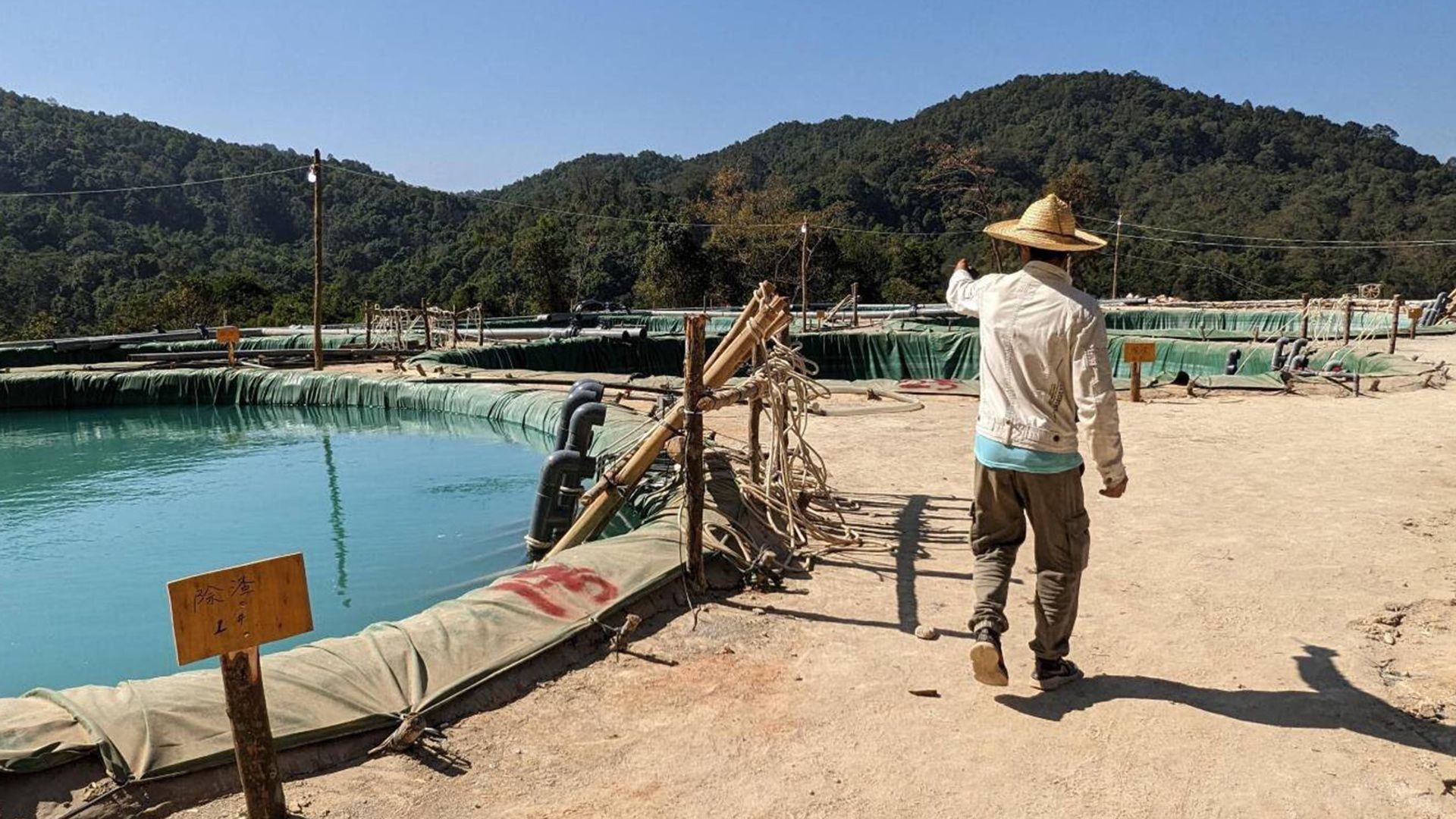
[JACK AYLMER]
MAKING THE NEXT GENERATION OF TECHNOLOGY HINGES ON ONE IMPORTANT GROUP OF RESOURCES.
AND CHINA CONTROLS NEARLY ALL OF THEM.
THEIR SECRET: EXPLOITING A NATION THAT HAS LONG SUFFERED FROM POLITICAL INSTABILITY, VIOLENCE, AND CORRUPTION.
BEIJING HAS EXACERBATED THESE PROBLEMS, AND MADE THE REST OF THE WORLD COMPLICIT IN THE ABUSE AS WELL.
WE’RE TALKING ABOUT MYANMAR AND ITS SUPPLY OF RARE EARTHS.
[BEN AYRE]
“It’s a really extreme example of where there is widespread destruction for these specific elements …
“It takes place in the context of a really volatile region, one where there is active conflict, and the funds that are going into it are not insignificant.”
[JACK AYLMER]
BEN AYRE IS THE HEAD OF DATA INVESTIGATIONS AT GLOBAL WITNESS-
A GROUP THAT WORKS TO shine a light on the link BETWEEN NATURAL RESOURCE EXPLOITATION AND HUMAN RIGHTS ABUSES WORLDWIDE.
THEIR RESEARCH HAS REVEALED THE LEVEL OF HARM BEING DONE TO BOTH MYANMAR’S PEOPLE AND the ENVIRONMENT-
ALL TO KEEP BEIJING’S CONTROL OVER THE WORLD’S RARE EARTHS INTACT.
[BEN AYER]
“The reports that we have from community members of damage to skin and to internal organs are consistent with findings, scientific studies into the effect of these chemicals on people …
Governments should adopt the necessary legislation in order to ensure the human rights and the environment are protected from from this mining practice.”
[JACK AYLMER]
CHINA HANDLES NEARLY 90 PERCENT OF GLOBAL RARE EARTH PROCESSING-
AN INDUSTRY WHICH HAS MADE THEM BILLIONS IN RECENT YEARS
IN THE PAST, BEIJING HAS FED THIS NEAR-MONOPOLY WITH RARE EARTHS MINED FROM WITHIN ITS OWN BORDERS-
PRODUCING ALMOST TWO-THIRDS OF THE PLANET’S SUPPLY.
BUT NOW, THEY’RE DEPENDING MORE AND MORE ON MYANMAR’S VAST RESERVES OF THESE RESOURCES-
TO THE POINT WHERE IT NOW ACTUALLY OUTPACES CHINESE PRODUCTION.
[BEN AYER]
“We’re talking in the region of 90% of all processing is happening in China, China resourcing the vast majority of its mineral supply from from Myanmar … mining operations have expanded by more than 40% across the region … And so any company that is engaged in that supply chain has to address that reality.”
[JACK AYLMER]
BECAUSE SO MUCH OF THE PLANET’S RARE EARTH SUPPLY IS NOW ORIGINATING FROM MYANMAR-
GLOBAL WITNESS SAYS THIS ISSUE is A WORLDWIDE PROBLEM.
PRODUCTS ACROSS THE GLOBE ARE BEING MANUFACTURED WITH THESE RARE EARTHS
THE GROUP IS CALLING ON THE COMPANIES THAT UTILIZE THESE RESOURCES TO LOOK critically INTO HOW THE MATERIALS ARE BEING SOURCED.
IF THEY CAN’T ENSURE THE RARE EARTHS ARE BEING EXTRACTED RESPONSIBLY, GLOBAL WITNESS WANTS THEM TO PULL OUT OF THEIR CURRENT SUPPLY CHAIN PRACTICES.
[BEN AYER]
“The burden of proof is really on any manufacturer that’s producing those products to demonstrate that they are not implicated in that supply chain … those companies that are sourcing these elements, do the necessary due diligence in order to ensure that they know the origins of the materials that they’re putting in their products.”
[JACK AYLMER]
FOR MORE ABOUT HOW THE RACE FOR RARE EARTHS IS IMPACTING PEOPLE ACROSS THE GLOBE, DOWNLOAD OUR STRAIGHT ARROW NEWS APP, AND SIGN UP FOR ALERTS FROM ME – JACK AYLMER – TO STAY INFORMED.











